what vegetables will grow in acidic soil?
never-give-up
15 years ago
Related Stories
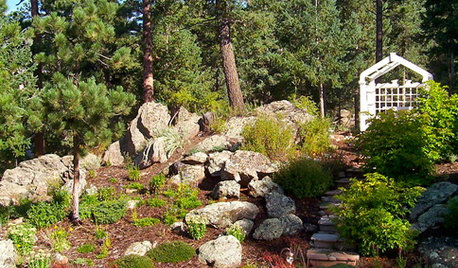
GARDENING GUIDESHave Acidic Soil in Your Yard? Learn to Love Gardening Anyway
Look to acid-loving plants, like conifers and rhododendrons, to help your low-pH garden thrive
Full Story
GARDENING GUIDESGrow a Beautiful Garden in Alkaline Soil
Got alkaline soil? Learn how to manage it and the many beautiful plants that will thrive in this ‘sweet’ soil
Full Story
FARM YOUR YARDHow to Get Good Soil for Your Edible Garden
The nutrients in your soil feed the plants that feed you. Here are tips on getting it right — just in time for planting season
Full Story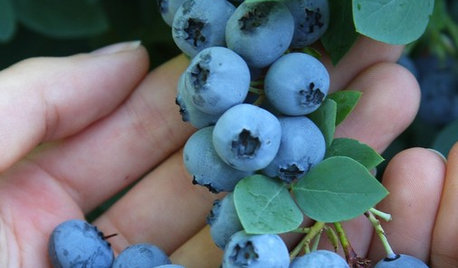
EDIBLE GARDENSSummer Crop: How to Grow Blueberries
Plant blueberries in spring or fall for garden beauty through three seasons — and a sweet superfood in summer
Full Story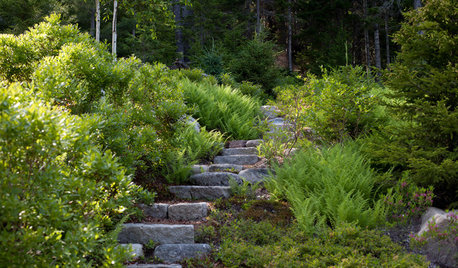
GARDENING GUIDESGreat Design Plant: Grow Blueberries for Their Fruit and More
Eastern gardeners should consider growing blueberry plants for their delicious fruits, bee-friendly spring blooms and brilliant fall foliage
Full Story
GARDENING GUIDESHow to Stop Worrying and Start Loving Clay Soil
Clay has many more benefits than you might imagine
Full Story
GARDENING GUIDESGardening Solutions for Heavy Clay Soils
What’s a gardener to do with soil that’s easily compacted and has poor drainage? Find out here
Full Story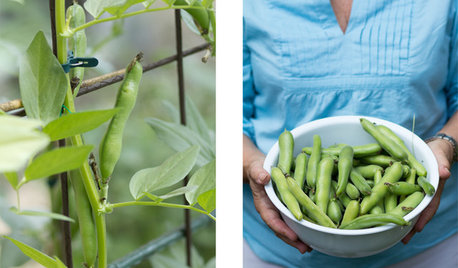
SUMMER FRUITS AND VEGETABLESSummer Crops: How to Grow Beans
Grow your own beans for amazing variety and healthy, convenient produce all summer
Full Story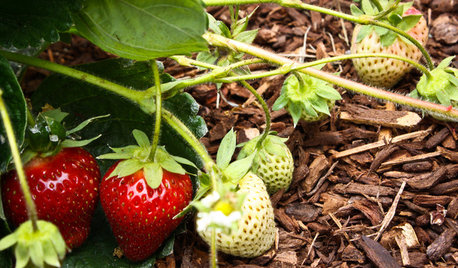
SPRING GARDENINGSummer Crops: How to Grow Strawberries
Pluck your own sweet strawberries right from the garden vine for smoothies, salads or eating then and there
Full Story
COOL-SEASON CROPSCool-Season Vegetables: How to Grow Potatoes
This ever-popular tuber is a stalwart in spring and fall gardens and a staple in kitchens everywhere
Full StoryMore Discussions







madmagic
madmagic
Related Professionals
Surprise Landscape Architects & Landscape Designers · Lakewood Landscape Architects & Landscape Designers · Marina Landscape Architects & Landscape Designers · Brookfield Landscape Contractors · Broomfield Landscape Contractors · Corona Landscape Contractors · Hilton Head Island Landscape Contractors · Hollywood Landscape Contractors · Lantana Landscape Contractors · Tacoma Landscape Contractors · Layton Decks, Patios & Outdoor Enclosures · Lincolnton Decks, Patios & Outdoor Enclosures · Methuen Decks, Patios & Outdoor Enclosures · Pittsburgh Decks, Patios & Outdoor Enclosures · West Bloomfield Township Decks, Patios & Outdoor Enclosuresmadmagic
buffburd
jean001
never-give-upOriginal Author
Kimmsr
never-give-upOriginal Author
justaguy2
Kimmsr
never-give-upOriginal Author
madmagic
fertilizersalesman
tclynx
fertilizersalesman
dizzyjane
anubis_pa
never-give-upOriginal Author
fertilizersalesman
never-give-upOriginal Author
never-give-upOriginal Author
footnut2001_yahoo_co_uk
pnbrown
Mr.Tea